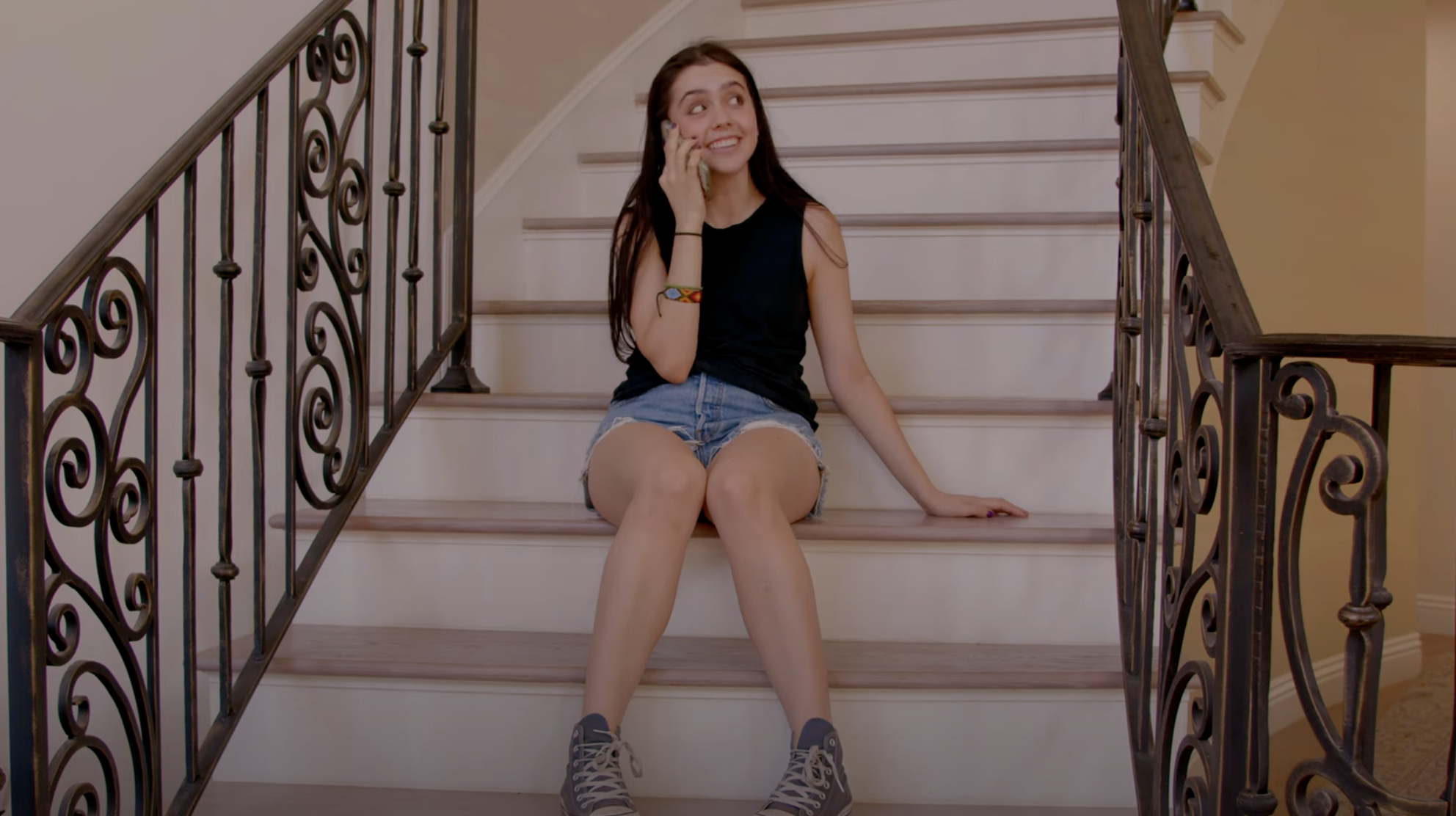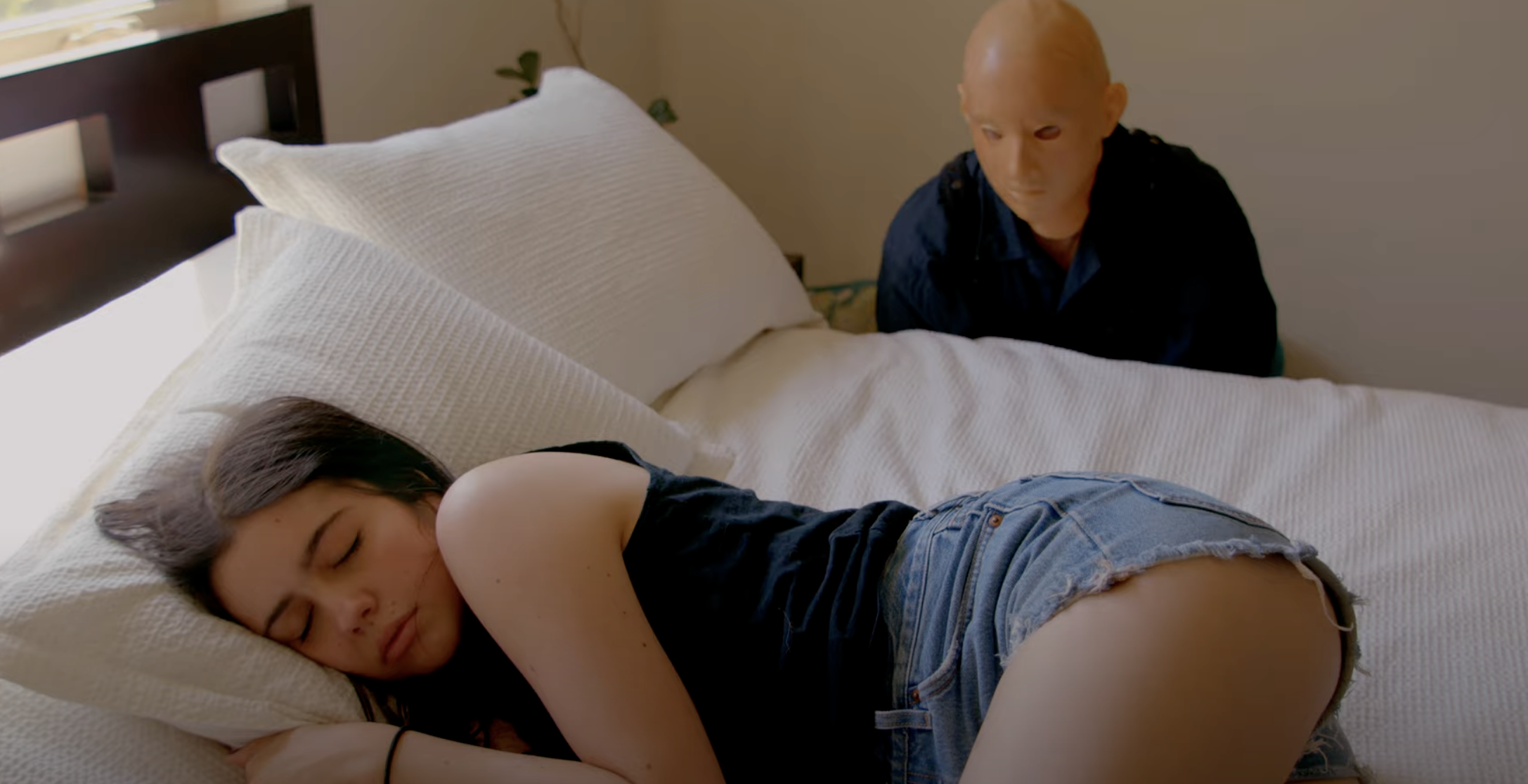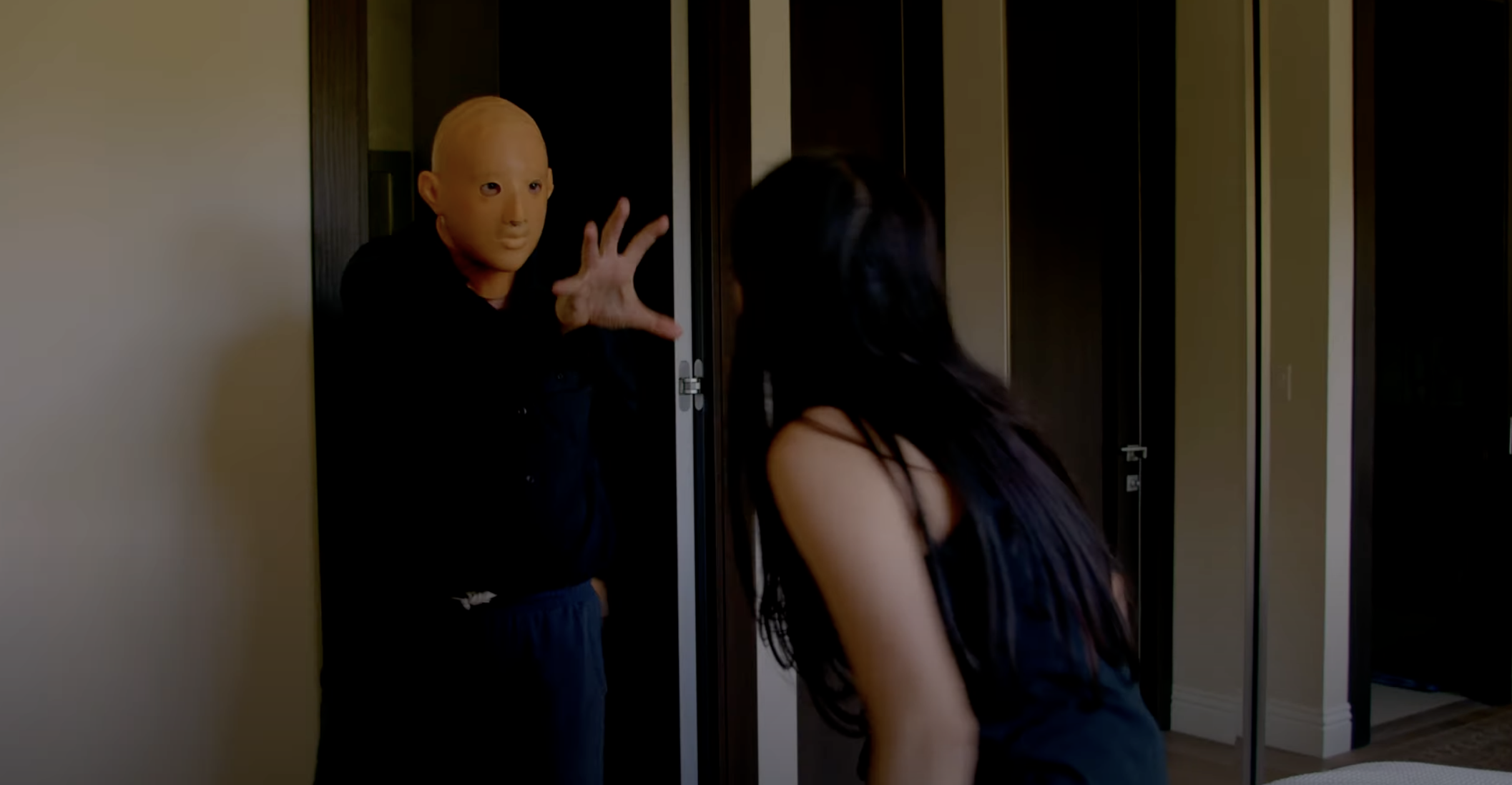Jamie Grefe’s Love Hurts is a haunting, hypnotic dive into horror as poetry. From the moment Mary (Mariana Carvajal) steps into her new sorority house, the film wraps viewers in a creeping sense of dread, intensified by the discovery of a mysterious crystal that seems to awaken the darkest impulses of a masked, relentless killer. The tension is unrelenting, yet measured—Grefe expertly balances moments of stark, visceral terror with a slow-burn, almost dreamlike surrealism.
Visually, the film is arresting. Every frame feels carefully curated, from the kitschy, empty picture frames to the unnervingly cheerful fire-place signage, creating an uncanny atmosphere that’s both domestic and sinister. Mariana Carvajal delivers a deeply immersive performance, her character embodying the blend of fear, determination, and raw vulnerability that anchors the film’s emotional core. Jamie Grefe’s turn as The Lover adds an unsettling, almost mythic quality to the killer, transforming what could have been a standard slasher into a psychotropic archetype of horror itself.
Love Hurts excels in its atmosphere. The film revels in liminality—spaces and objects feel familiar, yet threatening. The slow, almost meditative pacing allows the audience to absorb the layers of dread, the quiet rituals of violence, and the eerie poetry of the narrative. Fans of intimate, cerebral horror will find themselves spellbound, caught in a world where isolation, fear, and the supernatural converge.
While this is definitely a demanding watch—best experienced on the biggest screen possible in a comfortable chair—it rewards patience with moments of true cinematic transcendence. Grefe’s ability to fuse surreal, Lynchian-inspired imagery with an indie, no-budget sensibility is particularly impressive, demonstrating that horror can be both intellectually stimulating and viscerally terrifying.
Love Hurts is a triumph of indie horror: strange, beautiful, and disturbingly memorable. It lingers long after the credits roll, a poetic testament to the power of fear and the resilience of the human spirit.
Jessie Hobson



